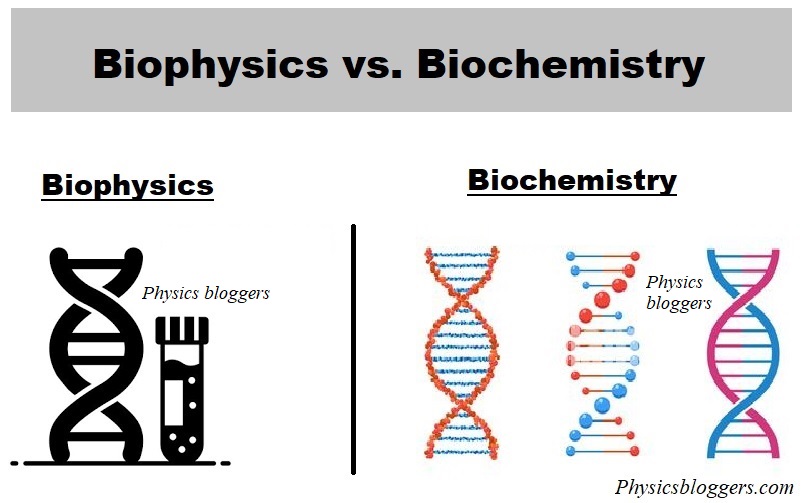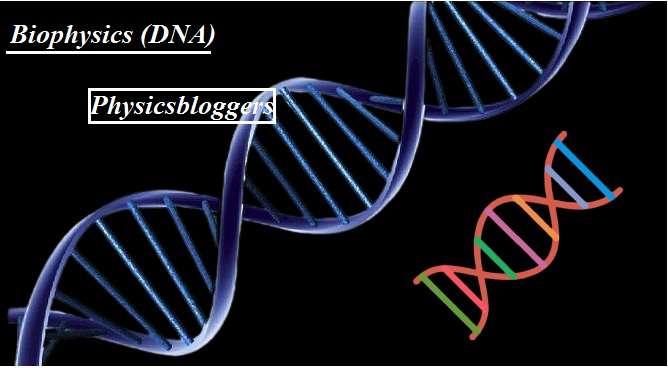Biophysics vs. biochemistry

biophysics vs biochemistry
Biophysics and organic chemistry are both logical disciplines that emphasize the investigation of natural frameworks. Nonetheless, they contrast in their methodologies and strategies.
Biophysics
The investigation of natural cycles utilizing material science-based standards is known as biophysics. It centers around the actual properties of organic atoms and the manner in which they associate with one another. Biophysicists use procedures like X-beam crystallography, atomic attractive reverberation, and fluorescence microscopy to concentrate on the design and capability of natural particles at the nuclear and sub-atomic levels. They try to comprehend the actual systems that underlie organic cycles, for example, protein collapsing, layer transport, and chemical catalysis.
Biophysics is a part of science that consolidates the standards of physical science with those of science to concentrate on living frameworks at various levels of the association. Biophysics applies quantitative and logical strategies to examine the actual properties of natural atoms, cells, tissues, and organic entities.
Biophysicists utilize various procedures, including X-beam crystallography, electron microscopy, atomic attractive reverberation spectroscopy, and computational displaying, to concentrate on natural frameworks. These strategies empower them to decide on the three-layered designs of natural atoms, concentrate on the cooperation among particles, and figure out the actual components of hidden organic cycles.
Biophysics envelops a large number of subjects, including the construction and capability of proteins, DNA, and RNA; the actual properties of cell layers and organelles; the mechanics of cell and tissue frameworks; and the biophysics of tangible frameworks and brain organizations. Biophysics likewise assumes a significant part in the advancement of new clinical innovations, like clinical imaging and medication conveyance frameworks.

Natural Chemistry
Natural chemistry, then again, is the investigation of the synthetic cycles that happen in living life forms. Organic chemists center around the synthetic properties of natural particles, like proteins, nucleic acids, and sugars. They use procedures like chromatography, electrophoresis, and mass spectrometry to concentrate on the construction and capability of these atoms. Organic chemists look to comprehend the synthetic responses and metabolic pathways that happen in living cells, as well as the guidelines of these cycles.
Natural chemistry likewise assumes an essential part in the comprehension of sicknesses at the sub-atomic level, including hereditary problems, metabolic issues, and disease. Research in organic chemistry has prompted the improvement of numerous significant clinical medicines and advances, like insulin treatment for diabetes, immunizations, and quality-altering strategies like CRISPR.
A portion of the vital areas of concentrate in natural chemistry incorporates enzymology, sub-atomic science, hereditary qualities, digestion, and protein construction and capability. Natural chemists utilize a large number of strategies and devices to concentrate on these areas, including sub-atomic science procedures, spectroscopy, chromatography, and computational techniques.
Conclusion
Biophysics underlines the actual rules that oversee natural frameworks, while natural chemistry accentuates the synthetic cycles that happen in living organic entities. In any case, there are many times cross-over between the two fields, as the two disciplines add to a more exhaustive comprehension of organic frameworks.



